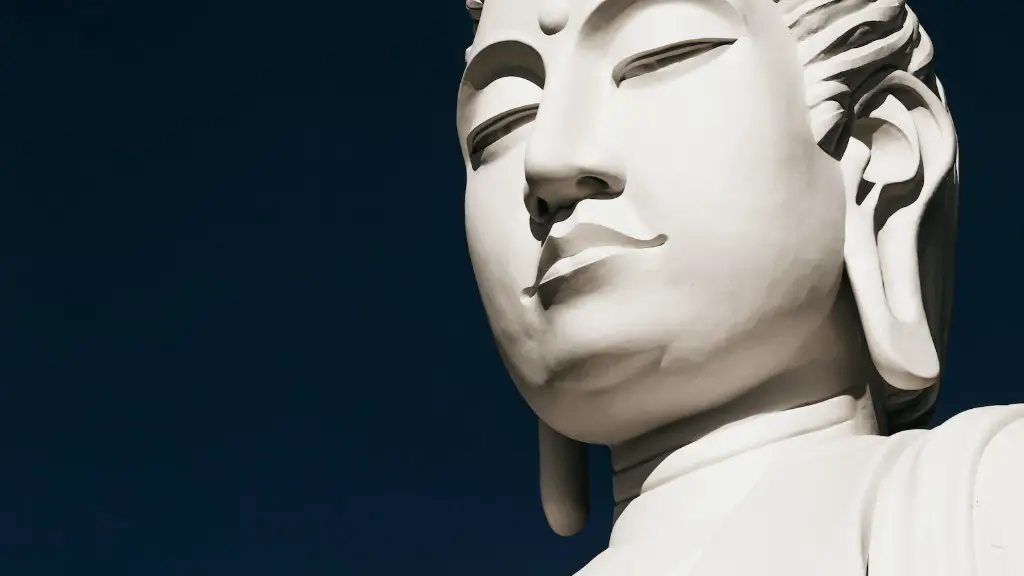It’s widely accepted that Hinduism is the oldest religion in the world, dating back at least 5000 years, and has its roots in the Indian culture. Hinduism is one of the world’s major religious traditions and has a particularly strong presence in India, where it is commonly practiced. But how did Hinduism begin? Though some Hindu gods have their origins in earlier religious movements, the formal Hindu tradition is thought to have begun with the Vedas, which were composed around 1500 BC.
Vedas are ancient Sanskrit scriptures which are believed to explain the universal truth that Hinduism is founded upon. According to Hinduism, truth can be expressed using different perspectives and is described as the result of three guns: Satya, Rajas and Tamas. Satya is truth, Rajas is passion and Tamas is the power of destruction. So it is that the Vedas refer to the ultimate forces of the universe that create, sustain, and destroy.
It is believed that the Vedas were offered to humanity by an omnipresent, omniscient and omnipotent God, referred to as Brahman. Brahman is viewed as both the source of life and its ultimate explanation. Brahman is also associated with creation and destruction, life and death. Brahman is ultimately unknowable, however, the Vedas offer insight, instructions and guidance for those humans seeking spiritual enlightenment.
The Vedas not only provide people with guidance on living, but also establish the basis of a culture and system of beliefs, which developed over millennia. This system of beliefs and values is known as Dharma, which roughly translates to “right conduct.” Dharma is law and morality and encompasses the laws of nature, social norms and personal obligations.
The Vedic texts also provide guidelines for the development and maintenance of a societal structure. In Hinduism, society is divided into four “varnas” or types of people. These are priests, rulers and administrators, merchants and producers, and the working classes. The fourth varna, the Shudras, is composed of those who do not fit in to one of the other three.
Over time, Hinduism evolved as it was adopted by different ethnic groups and as new ideas, beliefs and philosophies developed. Different sects within Hinduism emerged, each with its own unique set of rituals and beliefs. New religions and has also developed in response to Hinduism, such as Buddhism and Jainism.
Today, Hinduism is practiced by roughly 80% of the population of India and has also been embraced by communities outside of India. It is an integrated part of Indian culture and has been shaped and shaped by it. The defining beliefs and rituals of Hinduism have remained largely the same and continue to be practiced in many parts of the world.
The Role of Caste System in Hinduism
The caste system is an integral part of Hinduism, and divides society into four major categories on the basis of occupation and resources. The first three varnas – Brahmins, Kshatriyas, Vaishyas – represent the privileged sections, and Shudras form the bottom rung of the caste ladder. These subdivisions, which are called jatis, have continued to define the lives of Hindus from birth.
The caste system has had a major influence on the development of Hinduism, dictating important areas such as marriage, social organisation and the economy. The system of jatis has also had a strong influence on education and employment opportunities, with some castes facing exclusion and discrimination. Moreover, social mobility between jatis is still limited, and those belonging to higher castes often face difficulties when trying to access resources or gain opportunities in life.
The caste system has played a major role in determining the nature of Hinduism in India and been one of the core components of its social structure. Though widespread criticism of the system has led to some reforms, it still influences many aspects of Indian society.
Modern Hinduism & Its Impact
Modern Hinduism has moved away from traditional aspects of Hinduism such as the caste system, moving towards more liberal ideas and values. Hinduism has also developed new practices such as the incorporation of modern technology in religious worship. The ancient Sanskrit texts have also been reinterpreted in order to bring them in line with modern sensibilities.
Hinduism has had a major impact on Indian culture and society, with its beliefs and practices influencing many aspects of daily life. Hinduism plays a major political role in India, with its political parties seeking to actively protect the religion’s cultural heritage and promote its values.
Hinduism is also popular outside of India, with many non-Indians embracing some of its ideas and beliefs. This popularity of Hinduism has led to its adoption as a way of life by many outside of India, and its influence on international culture is growing.
Modern Challenges & Solutions
Though Hinduism has flourished in India for many centuries, it currently faces a number of challenges. These include the erosion of traditional Hindu values by modern influences and misappropriation of Hindu practices for commercial and political gain. In addition, the conduction of popular Hindu festivals such as Holi, Durga Puja and Diwali is increasingly being curtailed by government regulations.
Hinduism has been able to continue to thrive in India due to a number of factors, such as its deeply ingrained culture and traditions, its acceptance of a wide range of beliefs, and its embrace of modernity. In particular, Hinduism’s ability to combine ancient wisdom with modern technology has enabled it to evolve and remain relevant in today’s world.
Organisations such as the Hindu Council of India and the RSS work to protect and promote Hinduism in India, tackling issues such as caste discrimination, communalism and religious intolerance. In addition, many Hindus have sought to counter negative stereotypes and representations of Hinduism in the media, and promote its positive aspects.
International Hinduism
Hinduism’s popularity outside India has led to its adoption as a way of life by many outside of India, and its international influence is growing. A number of Hindu organisations have emerged in the West, including the Hindu American Foundation, which works to ensure recognition of its Hindu heritage and the protection of related religious rights. Other organisations such as the Swaminarayan Sanstha have been established to provide Indian expatriates with resources and spiritual guidance.
The spread of Hinduism internationally has allowed people from different backgrounds to gain exposure to its beliefs and practices. Moreover, it has offered new opportunities for Hinduism to continue to evolve and showcase its adaptability to different contexts and cultures. In recent years, Hinduism has increasingly been defined as a global religion, with its popularity on the rise in places such as the United States and other parts of the world.
The Future of Hinduism
Hinduism’s growth and relevance in the world has been further enhanced by its capacity to embrace change and stay informed about new trends and technologies. Technology in particular has enabled Hindus to connect with people from all over the world, and has made Hinduism a global phenomenon. Hinduism’s ability to combine traditional wisdom with modern ideas has also allowed it to evolve and remain relevant in the 21st century.
Hinduism is also facing a number of challenges, such as increasing regulations and cultural indifference. With a rise in protection issues and religious intolerance in many parts of the world, Hinduism has had to adapt to remain relevant. To counter these problems, Hindus need to continue to actively promote its values and beliefs, and pursue dialogue with other religions and cultures.
Hinduism is set to continue to play an important role in the world for many centuries to come. Despite the challenges it faces, its core beliefs and values remain unchanged, and it will continue to provide guidance and inspiration for many.


